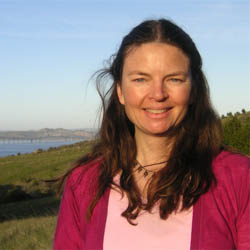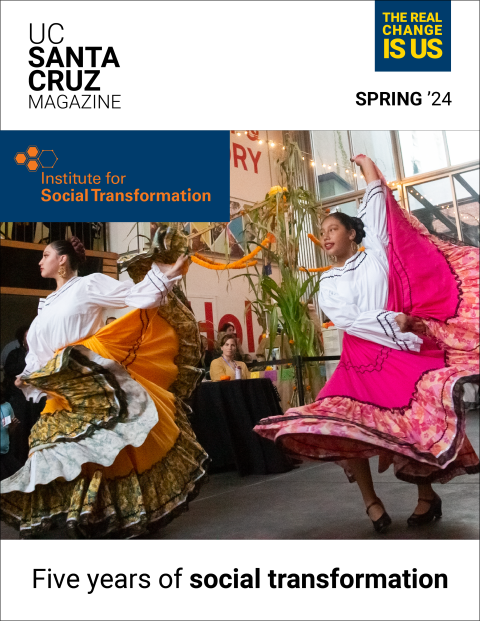Pam Rittelmeyer, a lecturer in the Department of Environmental Studies and College Nine at UC Santa Cruz, is a contributing author on the latest report from the Intergovernmental Panel on Climate Change (IPCC). The report, released as a draft in February, offers new insights on global climate change impacts, adaptation, and vulnerability.
Rittelmeyer worked with an international team of 75 contributing authors, 10 lead authors, and 2 coordinating lead authors on Chapter 4 of the report, which focuses on water. She joined the project in spring of 2020, while she was completing her Ph.D. in environmental studies at UCSC. Over a period of about two months, she and a group of other contributing authors each read and coded more than 100 case studies as part of a review of global research on the effectiveness of water-related climate adaptation efforts.
“It was a lot of work, and my dissertation actually ended up getting pushed back a couple of months because of this, but I am really glad I did it,” Rittelmeyer said. “I met some great people through working on the IPCC report, and now, looking at Chapter 4, I can see our work sprinkled throughout, which is really cool.”
Rittelmeyer additionally worked with a smaller team to summarize specific examples from the research review that showed how communities are adapting to water-related climate change disasters. Her own dissertation research was on flood risk in California, so the IPCC project allowed her to take a broader, global view of climate-related water issues.
“The case studies we reviewed had to do with climate change impacts that bring either too little or too much water, so it was everything from droughts to floods to soil erosion to lack of clean, safe, affordable water,” she said. “We were examining these issues in Africa, Southeast Asia, Small Island Developing States, and other places around the world, and we wanted to understand how communities are responding.”
An aspect that the IPCC team was particularly interested in was whether approaches to adaptation were incorporating Indigenous, local, or traditional knowledge, and if key stakeholders, including women and marginalized groups, were engaged in decision-making processes. The report recognizes these measures as being essential for building effective, equitable, and just adaptation strategies.
“Marginalized communities, particularly in parts of the Global South, are some of the most vulnerable populations that are experiencing climate change consequences first, and we wanted to make sure that their points of view and ways of knowing are being incorporated,” Rittelmeyer said. “These communities are already encountering the need to adapt to water-related climate change, and they're already taking steps.”
Another important aspect of the research was looking for measures of effectiveness, specifically which risks were being reduced, in adaptation responses. Rittelmeyer said this was a challenge, because many case studies were focused more on the planning processes for adaptation than evaluating the outcomes of the adaptation response. Some studies did have clear numerical data on the risk reduction, and others offered qualitative data that required careful discussion and interpretation.
Adaptation processes—like migrating to cities from flood-prone rural areas, or changing crop varieties and irrigation practices in response to drought—are complex, and effectiveness may differ over the short-run and the long-term. Rittelmeyer hopes the new IPCC report will encourage more research into the effectiveness of water-related climate change adaptations. But she also notes that the challenges often reflect those of adaptation itself.
“It’s tricky because, in many cases, we won’t really know if the steps we’re taking today have been effective until decades from now,” she said. “And with climate change, we don’t have the time to wait.”



